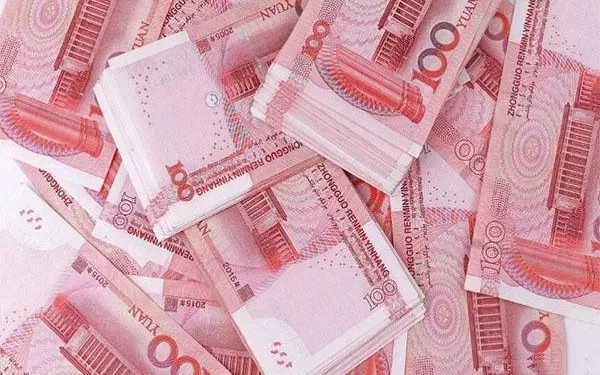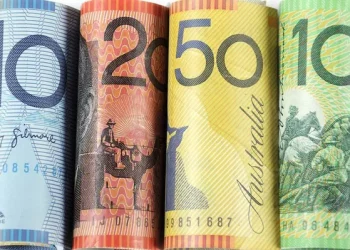What Is yuan to hkd dollar? This question often echoes in the minds of investors, traders, and individuals engaged in international transactions. The exchange rate between the Chinese Yuan (RMB) and the Hong Kong Dollar (HKD) holds significant implications for global trade and financial markets. In this comprehensive article, we will delve into the intricacies of the current RMB exchange rate, providing a detailed analysis of the Yuan to HKD Dollar conversion, exploring key factors influencing this exchange, and offering insights into its impact on various stakeholders.
Understanding the Basics: Yuan, HKD Dollar, and Exchange Rates
Before delving into the specifics of the current exchange rate, it’s crucial to grasp the fundamentals. The Chinese Yuan, represented by the symbol ¥ and abbreviated as RMB (Renminbi), is the official currency of the People’s Republic of China. On the other hand, the Hong Kong Dollar, denoted as HKD, serves as the official currency of the Hong Kong Special Administrative Region.
Exchange rates, the focus of our inquiry, represent the value of one currency in terms of another. In the case of Yuan to HKD Dollar, it signifies how many Hong Kong Dollars one can acquire in exchange for a unit of Chinese Yuan. As exchange rates fluctuate, they impact international trade, investments, and economic stability.
The Numbers Game: Current Exchange Rate Analysis
As of the latest data available, the current exchange rate for Yuan to HKD Dollar stands at 1.12. This numerical representation is the outcome of a complex interplay of economic factors, market dynamics, and geopolitical influences. To gain a nuanced understanding of this exchange rate, let’s break down the components shaping its trajectory.
See Also:RMB to RUB
1. Economic Indicators and Performance
The economic health of both China and Hong Kong plays a pivotal role in determining the exchange rate. Key indicators such as GDP growth, inflation rates, and trade balances contribute to market perceptions of each currency’s strength. A robust Chinese economy may bolster the Yuan, while economic challenges could exert downward pressure.
2. Trade Relations Between China and Hong Kong
Trade relations between the two regions are a cornerstone of the Yuan to HKD Dollar exchange rate. The volume and nature of imports and exports impact demand for each currency. Shifts in trade dynamics, tariffs, and trade agreements can swiftly influence exchange rate movements.
3. Monetary Policy and Central Bank Actions
The policies adopted by the People’s Bank of China (PBOC) and the Hong Kong Monetary Authority (HKMA) are instrumental in shaping the exchange rate. Interest rate decisions, interventions in currency markets, and monetary policy adjustments contribute to the overall monetary environment affecting the Yuan and the HKD.
4. Global Economic Factors
Beyond the borders of China and Hong Kong, global economic conditions exert substantial influence on the exchange rate. Factors such as the U.S. Dollar’s strength, geopolitical tensions, and commodity prices contribute to the volatility witnessed in currency markets.
5. Investor Sentiment and Speculation
Psychological factors often drive short-term fluctuations in exchange rates. Investor sentiment, market speculation, and perceptions of risk can lead to rapid and unpredictable movements. Understanding these sentiment-driven dynamics is crucial for traders and investors navigating the Yuan to HKD Dollar exchange.
6. Government Policies and Interventions
Government interventions, including currency pegs, can have a profound impact on exchange rates. Policies aimed at stabilizing or manipulating currency values directly influence the relative strength of the Yuan and the HKD.
7. Impact on Importers and Exporters
For businesses engaged in cross-border trade between China and Hong Kong, the exchange rate is a critical factor. Fluctuations can affect the cost of imported goods, alter profit margins, and influence the competitiveness of exports.
8. Tourism and Cross-Border Transactions
Individuals traveling between China and Hong Kong or engaging in cross-border transactions are directly affected by exchange rate movements. The purchasing power of currencies influences the affordability of goods and services across borders.
9. Hedging Strategies for Currency Risk
In a volatile currency market, businesses and investors often employ hedging strategies to mitigate the impact of exchange rate fluctuations. Derivatives, forward contracts, and other financial instruments play a role in managing currency risk associated with Yuan to HKD Dollar conversions.
10. Future Outlook and Considerations
As we analyze the current state of the Yuan to HKD Dollar exchange rate, it is essential to look ahead. Anticipating future trends requires an ongoing assessment of economic indicators, policy developments, and global events that may shape the trajectory of these two currencies.
Conclusion: Navigating the Currency Landscape
In conclusion, the question “What Is yuan to hkd dollar?” encapsulates a multifaceted inquiry into the dynamics of international finance. The exchange rate between the Chinese Yuan and the Hong Kong Dollar serves as a barometer of economic health, trade relations, and geopolitical stability. As stakeholders navigate this complex currency landscape, staying informed about the factors influencing exchange rates is paramount for informed decision-making. Whether you are a trader, investor, business owner, or an individual planning cross-border transactions, a comprehensive understanding of the Yuan to HKD Dollar exchange rate is indispensable in today’s interconnected global economy.
Related Topics:
Current RMB Exchange Rate: Yuan to Turkish Lira
Current RMB Exchange Rate: Yuan to USD Today
Current RMB Exchange Rate Analysis: Yuan to VND

























